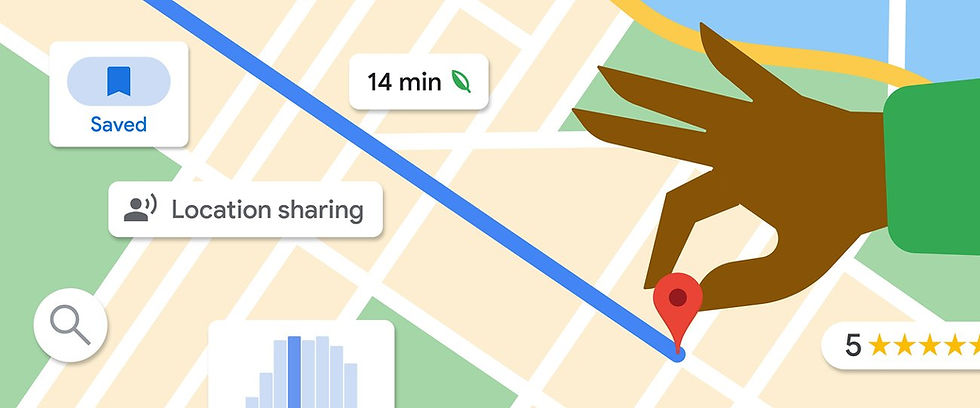7 Indian Billionaires Under 30 (2025) and What They Did Differently
- Abhinand PS
.jpg/v1/fill/w_320,h_320/file.jpg)
- Jul 28
- 3 min read
🏆 Quick View: India’s Top Billionaires Under 30 (2025)

Name | Age | Startup/Business | Key Industry | Net Worth (₹) |
Kaivalya Vohra | 23 | Zepto | Quick commerce | ₹9,800 Cr |
Nikhil Kamath | 29 | Zerodha, True Beacon | Fintech/Investments | ₹17,000 Cr+ |
Ritesh Agarwal | 30* | OYO Rooms | Hospitality/Travel | ₹12,500 Cr |
Tilak Mehta | 20 | Papers N Parcels | Logistics Tech | ₹1,000+ Cr |
Shravan Kumaran | 25 | GoDimensions | Mobile App Development | ₹850+ Cr (est.) |
Sanjay Kumaran | 26 | GoDimensions | Software Solutions | ₹850+ Cr (est.) |
Vidit Aatrey | 29 | Meesho | E-commerce/Social | ₹6,000 Cr+ |
*Ritesh turned 30 in 2024 but qualifies due to wealth built before that.
👋 Introduction: What Makes These Billionaires Different?
Let’s be honest. In 2025, just having a startup isn’t enough.
The game has changed—and these 7 Indian billionaires under 30 are living proof. They didn’t just follow trends. They built, scaled, and monetized ideas in ways the older generation never imagined.
In this post, we’ll break down:
Who these billionaires are
What industries they disrupted
What they did differently (habits, decisions, mindset)
And how you can apply their lessons
🚀 1. Kaivalya Vohra (Age 23) – The Zepto Rocket
Co-founder of Zepto, Kaivalya made India’s 10-minute grocery delivery mainstream. What started as a college project in Stanford is now a multi-billion-dollar Q-commerce empire.
What He Did Differently:
Focused on ultra-fast last-mile logistics
Leveraged hyperlocal warehouse models early
Scaled rapidly with a tech-first mindset
📌 LSI keywords: quick commerce, dark store network, grocery delivery startups
📈 2. Nikhil Kamath (Age 29) – The Fintech Maverick
A high-school dropout turned trading prodigy, Nikhil co-founded Zerodha, India’s #1 stock brokerage by volume, and later True Beacon, an ultra-HNI wealth platform.
What He Did Differently:
Disrupted a highly regulated industry with zero-commission trading
Used content marketing (via podcasts and Twitter) to build trust
Adopted a bootstrapped, no-VC approach
🔗 Forbes India profile
🏨 3. Ritesh Agarwal (Age 30) – From Dropout to Hotel Tycoon*
The OYO founder launched his hospitality startup at 18 and grew it into one of the world’s largest hotel chains—despite heavy criticism, regulatory hurdles, and COVID-19.
What He Did Differently:
Scaled fast using asset-light franchising
Took bold risks in foreign markets early on
Focused on brand consistency in unorganized spaces
📌 Related post on abhinandps.com: Scaling a Startup in India: 2025 Roadmap
📦 4. Tilak Mehta (Age 20) – Teenager Turned Logistics Disruptor
At just 13, Tilak founded Papers N Parcels, a digital courier service that used Mumbai’s dabbawalas for same-day intra-city delivery.
What He Did Differently:
Tapped into existing informal networks
Focused on B2B micro-delivery at scale
Balanced school and CEO life in his teens
👨💻 5 & 6. Shravan & Sanjay Kumaran (Ages 25 & 26) – India’s Youngest Sibling Founders
These Chennai-based brothers started coding at 10 and built GoDimensions, a mobile app company with global clients.
What They Did Differently:
Focused on educational and productivity apps
Built apps across platforms (iOS, Android, Windows)
Got recognized by Apple and TED before 18
🔗 External source: Times of India - GoDimensions Story
🛍️ 7. Vidit Aatrey (Age 29) – The Social Commerce King
Founder of Meesho, Vidit turned WhatsApp sellers into D2C brands. Meesho became the face of social e-commerce in Tier 2 & 3 India.
What He Did Differently:
Made e-commerce accessible to non-tech users
Optimized for low-data regions
Created income opportunities for homemakers and students
📘 Semantic SEO tip: Use keywords like “social commerce India 2025,” “Tier 2 e-commerce platforms,” and “reseller platforms India.”
🧠 What These Billionaires Have in Common
Despite their different industries, these young billionaires share a few key traits:
✅ 1. They Built for Bharat
Instead of chasing elite markets, they tapped into underserved Tier 2 & 3 users.
✅ 2. They Acted Fast—and Adapted Faster
Whether it was changing monetization models or pivoting products, speed was their moat.
✅ 3. They Created, Not Just Curated
They weren’t afraid to invent business models, not just replicate them.
📚 FAQ: Young Indian Billionaires & Entrepreneur Lessons
1. How did these Indian billionaires get rich so young?
They launched high-growth startups in sectors like fintech, logistics, and commerce—and solved hyper-local problems at scale.
2. Do you need to drop out of college to succeed?
Not at all. While some did, others balanced education and business. What matters more is execution, not education alone.
3. What are the top industries for young entrepreneurs in India (2025)?
AI & SaaS tools for SMBs
Rural e-commerce and logistics
Green energy tech
Creator economy platforms
✅ Final Word: Billionaire Mindsets, Not Just Money
Becoming a billionaire before 30 isn’t just luck—it’s strategy, risk, timing, and relentless execution. These Indian entrepreneurs didn’t wait for the perfect time. They created it.
If you're building something right now, don’t just aim to go viral. Aim to solve a real problem for real people. That’s how billionaires are made.
🔥 Ready to build your own success story?Explore more founder stories and startup tools on abhinandps.com



Comments